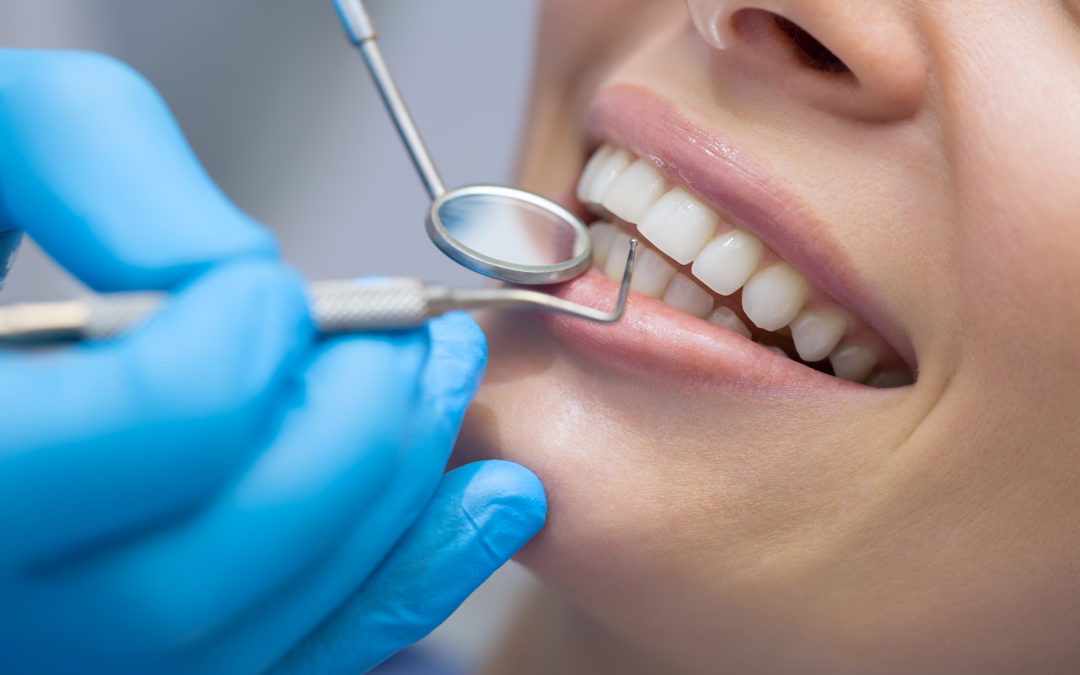Cavities happen to us all. In fact, a whopping 92% of adults have had cavities filled, while a further 26% of adults have untreated cavities. Sometimes, a cavity is sitting in our mouths waiting to be filled and we don’t even realize it!
That’s why it’s so important to learn how to tell if you have a cavity. Untreated cavities only lead to further dental issues, and more painful ones at that. So, here are all the signs of a cavity that you need to look out for.
Sensitivity to Heat and Cold
One of the most common signs that you may have a cavity is lingering sensitivity when you eat or drink hot or cold food or beverages.
Your teeth have a layer of tissue called dentin that lies below the enamel. As the enamel of your teeth wears down, it exposes the dentin. When hot or cold food hits the dentin, it stimulates nerves and cells in your teeth, creating that feeling of sensitivity and discomfort.
This feeling may linger for seconds, or even minutes after you have the food or drink. It can make enjoying your favorite foods very hard.
Discoloration
Cavities are a symptom of tooth decay. If that tooth decay gets too bad, it starts to exhibit itself physically on your teeth.
If you see a dark spot on any of your teeth (brown or black) you could have a cavity. You should especially watch for spots that grow in size. In some cases, the spots may even be a light, off-white color.
If you see any discoloration on your teeth, always get it looked at by your dentist. Perhaps schedule an appointment with Dr. Robert Govoni at Brushin’ on Belmont.
Toothache
The classic sign of a cavity is a toothache.
The ache can range from dull and occasional, to constant and debilitating at the absolute worst. It may come on randomly one day, or after you eat something your cavity doesn’t enjoy. The pain might radiate around your whole mouth, in multiple teeth, and will particularly hurt when you bite down.
Toothaches happen because of inflammation around the affected tooth. The dentin in your tooth becomes more sensitive, and inflammation creates pain. If you have a toothache, see Dr. Bob at Brushin’ on Belmont as fast as possible.
Bad Breath, Weird Taste
When you have a cavity, you have bacteria in your mouth around the affected tooth. That bacteria produces waste, and that waste has an effect.
Namely, you might notice your breath smells bad. If this is the case, you might also notice a foul taste in your mouth from time-to-time. The smell and taste can be hard to hide, which can be a bit embarrassing if anyone notices.
If you have consistently bad breath lately, you may have a cavity.
Bleeding, Swollen Gums
Not all cavities are the same. Some of them settle near the gum line, where they exhibit symptoms in the gums themselves.
If your gums are looking swollen or are bleeding randomly or when you brush or floss, set an appointment with your dentist. The likely answer is a cavity, but it could also be gingivitis! Keep up with your regular dental check-ups and you’ll catch the issue before it gets worse.
A Hole In Your Tooth
Remember how we talked about discoloration? A hole in your tooth is often the evolution of this discoloration.
As the decay on your tooth worsens, it will eventually break down and turn into a hole in your tooth. You might notice this hole in the mirror, or simply feel it with your tongue. In other cases, you may not feel or see them at all thanks to their location.
When you notice a hole in your teeth, you know it’s time to make an appointment with Dr. Monika at Brushin’ on Belmont. This is a sure sign of a cavity that needs to be filled as soon as possible.
Pus
If you see pus near a tooth or teeth, your cavity has gone too far. It’s become an abscess that needs to be handled right away.
Abscesses are very painful and cause fevers and swollen glands. Pus will routinely collect and drain from the abscess, causing great pain. If this is the case, your dentist will prescribe you antibiotics and get the cavity filled to fix you up.
This is very important to get on top of, as abscesses can spread around the mouth.
Biting Pain
We’ve talked about general pain, but if you notice more pain when you bite, you likely have a cavity.
You may have general pain along with this, but it gets much worse when you chew or bite down. This is more common in cavities towards the back of the mouth. The pain can be excruciating, leading you to change the way you eat food entirely.
Don’t sleep on this common sign of a cavity!
No Signs
The tricky thing about cavities is that they don’t always show signs, especially in their earlier stages.
When a cavity is first settling in, you’ll likely exhibit no signs. As the cavity gets worse, these signs may start to exhibit. They’ll get worse as the cavity does, practically begging you to get it filled in.
That’s why it’s so important to keep up with regular visits to the dentist. If you haven’t visited the dentist in a bit, make an appointment with Brushin’ on Belmont today.
Learning How to Tell If You Have a Cavity
Now that you know how to tell if you have a cavity, pay close attention to your mouth. Take a few bites, test your breath, and feel for any holes in your teeth. If you notice any potential signs of a cavity, it’s time to make an appointment.
Contact Brushin’ on Belmont today to discuss your dental health with us.

